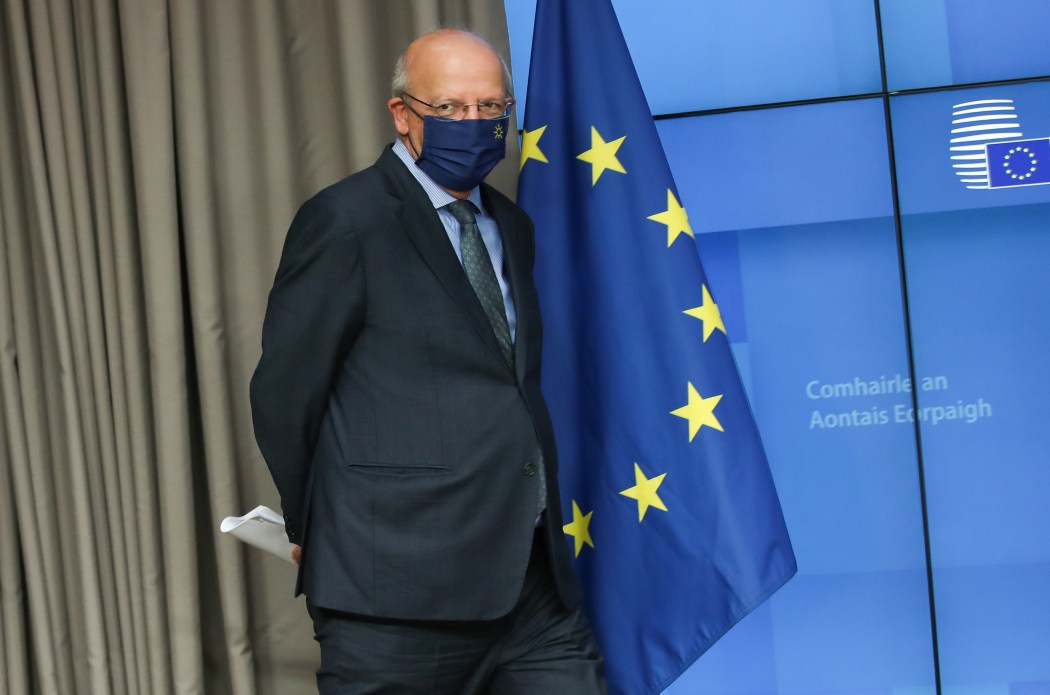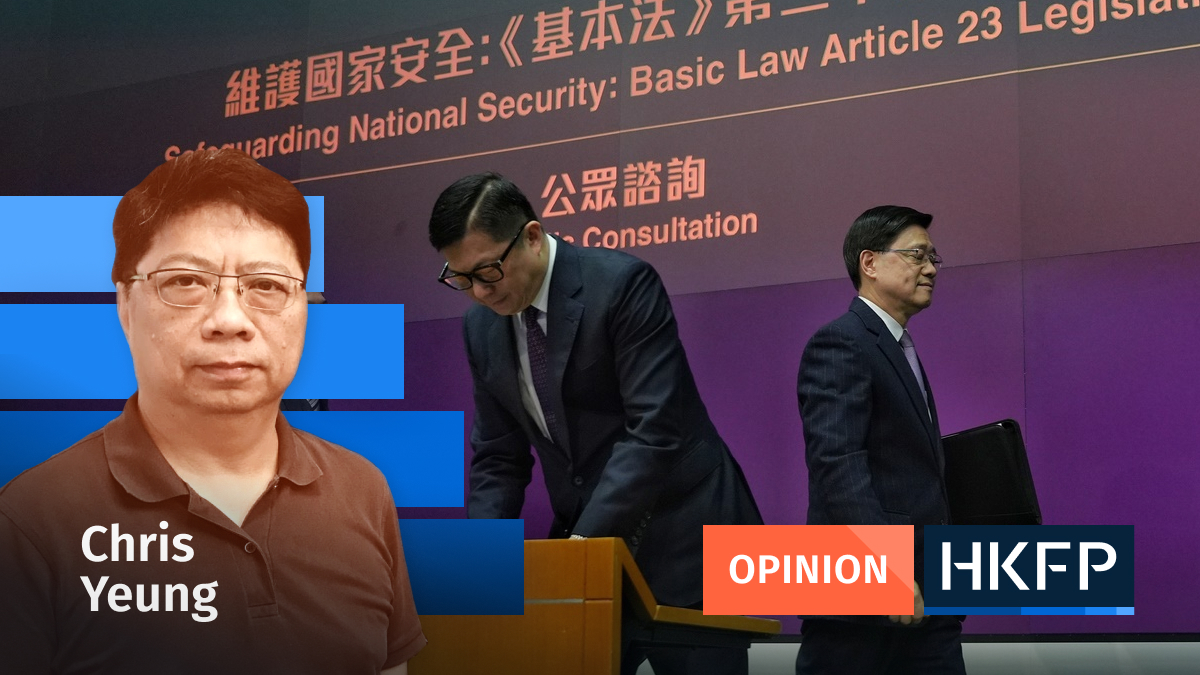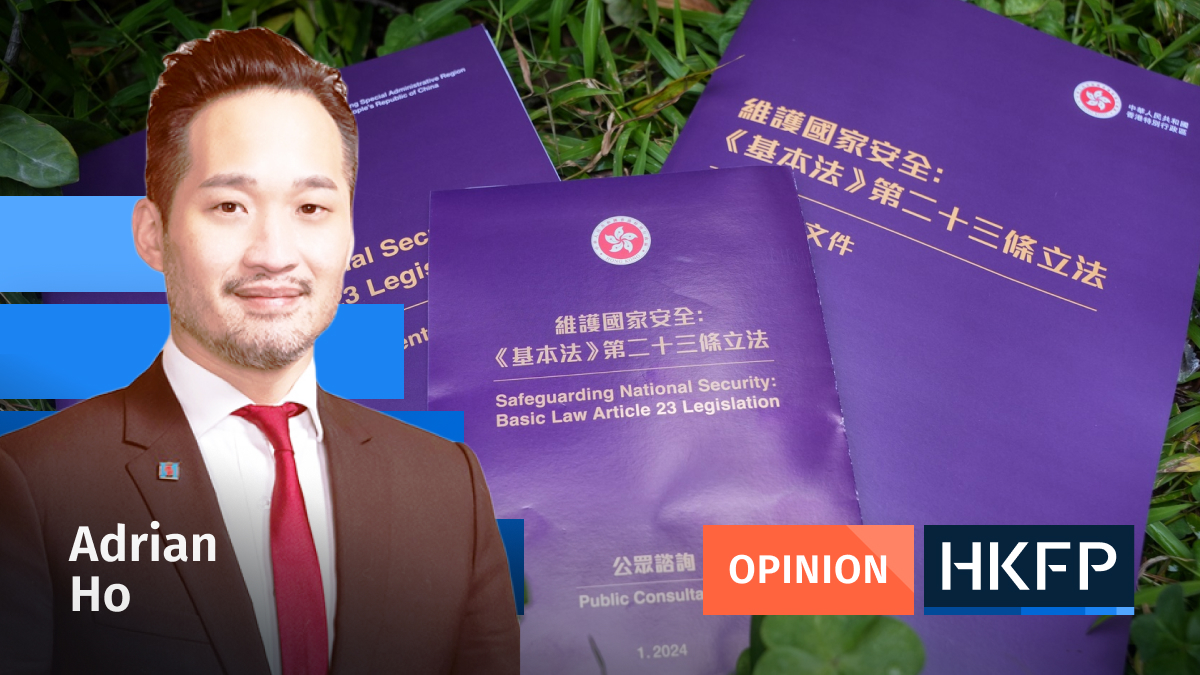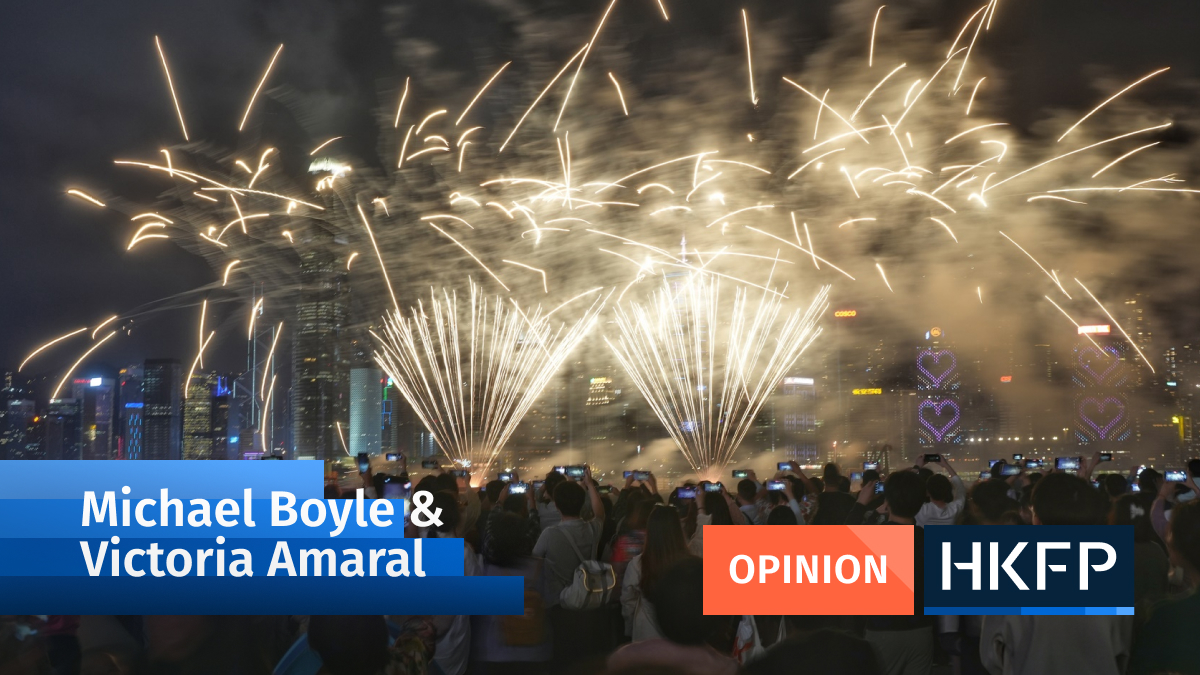Last week the Portuguese Government issued a strongly-worded rebuke to Beijing over a controversial recent moves to censor Macau TV and radio, calling on China to abide by its international treaty obligations towards Portugal on fundamental rights.
The rebuke came after HKFP revealed new guidelines issued to roughly 40 Portuguese and English-speaking reporters by the Executive Committee of the Macau public television and radio broadcaster TDM on 11 March.

The rules require the reporters to “promote patriotism, respect and love the motherland and the Macau SAR”, withhold “information or opinion contrary to the policies of the Central Government of the PRC, and support measures adopted by the Macau SAR” and support “the fundamental principle that Hong Kong SAR is governed by patriots”. The guidelines further stated that “TDM is an information dissemination body of the Central Government of the PRC and the Macau SAR”.
The reporters would not only be censored and forbidden from reporting, but would be required to actively support propaganda of the Macau and China governments.
They were also apparently informed that they would be fired – with no right to compensation – should they breach the new rules, which replaced TDM’s prior guidelines.
Since the handover, Portugal has been conspicuously silent and overly acquiescent to China in the face of increasing instances of fundamental rights violations in Macau. But Augusto Santos Silva, the Portuguese Foreign Affairs Minister, clearly was not willing to take things lying down this time around.
After the news of the TDM moves was published by several outlets in Portugal (following reports by the news agency Lusa), and was the subject of an extensive article and editorial in the influential newspaper, Público, Santos Silva seems to have concluded that enough is enough.

Questioned by journalists on the day Público’s editorial was published, he said that the Portuguese government “expects and relies on both sides to comply with the Basic Law in all its provisions.”
Invoking the 1987 bilateral treaty, the “Joint Declaration between Portugal and the PRC on the Question of Macau”, Santos Silva stressed that the Basic Law is the result of the Joint Declaration and, as Portugal respects its obligations, “Portugal expects the People’s Republic of China to also scrupulously respect the Basic Law in Macau, among many other areas … in the field of freedom of the press”, remarking that the “Basic Law is very clear in ensuring freedom of the press”.
It was the first time in 20 years that the Portuguese Government has called on China to abide by its international obligations on matters of fundamental rights. In political language, Santos Silva talk was tough: He demanded scrupulous respect not only for freedom of the press, but for human rights as a whole.
A recent position advanced by the Macau authorities, to the effect that they are not obliged to abide by the International Covenant on Civil and Political Rights, may have helped to stir the pot.
Santos Silva spoke from a position of strength. He made his unequivocal remarks just after a summit of NATO’s foreign ministers in Brussels, where he was presiding over the Council of the European Union – the most important political position in the EU – on behalf of Portugal.

He was certainly speaking as a Portuguese Minister, but one cannot overlook the influence of his words while simultaneously holding the position of President of the Council of the EU. He surely knew what he was doing.
The Chinese Government’s response to global criticism of their hardening policy on Hong Kong policy has been that the problem was its “unpatriotic” people. The comparison is always made with Macau, where the sun always shines and the wind is an inspiration.
But they could not help themselves. Growing oppression of Macau’s liberties has backfired. The previously docile Portuguese Government was joined by several other countries in the international community to tell China off.
It was a courageous act, as Macau is much more dependent on China economically and politically than Hong Kong is. Macau citizens – Portuguese, Chinese, and all others – deserved Santos Silva’s words of support.
The oppressive nature of the new TDM censorship guidelines prompted several journalists to walk away from their TDM jobs directly into unemployment. It will not be easy to find jobs in Macau or Portugal as media outlets in the latter are firing, not hiring, journalists. The more than thirty remaining staff are resolved to continue doing their job under the same guidelines they have always followed – with self-imposed freedom and independence – the only rules they have ever known.

Both those who stayed and those who left are being exceedingly brave.
Chinese language media outlets in Macau have been largely controlled and have exercised self-censorship, while Portuguese and English language media, with one or two exceptions, have been one of the strongest pillars of the rule of law in Macau – in fact without them it would be an historical concept.
As far as these journalists are concerned, “patriotism” means being in love with facts and journalistic accuracy, not with the policies and ideologies of governments or rulers. It is an act of freedom, not of submission. Patriotism of the kind contained in the new guidelines is incompatible with journalism. The same applies to history, education, social justice, court decisions, and most human undertakings.
Furthermore, these measures were unnecessary. China wants Macau to be what it already is: a “patriotic”, compliant, business city.
This is so often a consequence of local elites willing to be more royal than the King himself. They fail to understand that Macau is too small and will only matter – both for China and for its community – if it is unique in the context of the Mainland. Difference means survival. A pea in a pod will be eaten.

The clumsy way the censorship strategy was implemented by the local elite was tellingly appalling. They decided to draft nine rules – pen on paper – call all the journalists into a room, and read these rules out loud. And threaten them with dismissal.
Really? Does one tell dozens of journalists in a quasi-general assembly that their work is going to be censored and expect them to take it silently and walk away obediently? It is difficult to envisage a worse way of doing it. This incapacity for creativity is an expression of the intellectual and psychological cavern these rulers live in. In truth, political aptitude is an instrumental value: it is only a virtue when the goal it serves is itself virtuous…
One wonders who the mastermind of this subtle plan was. This person managed to turn Macau upside down; call expressions of solidarity from all sides of the world, including from Reporters Without Borders and the English and Portuguese Macau, the Chinese Macau, and the Portuguese Journalists Associations; force the Chief Executive to babble an unconvincing denial; and get China rebuked by the Portuguese Government. For the first time ever.
Could they have done it better? No. Incompetence and arrogance grow within autocratic and subservient minds, becoming a constituent part of their nature. It would have been laughable were it not so tragic for many journalists and their families – and for us all in Macau.
Support HKFP | Policies & Ethics | Error/typo? | Contact Us | Newsletter | Transparency & Annual Report | Apps
| HKFP is an impartial platform & does not necessarily share the views of opinion writers or advertisers. HKFP presents a diversity of views & regularly invites figures across the political spectrum to write for us. Press freedom is guaranteed under the Basic Law, security law, Bill of Rights and Chinese constitution. Opinion pieces aim to point out errors or defects in the government, law or policies, or aim to suggest ideas or alterations via legal means without an intention of hatred, discontent or hostility against the authorities or other communities. |
Help safeguard press freedom & keep HKFP free for all readers by supporting our team

More HKFP OPINION:
HKFP has an impartial stance, transparent funding, and balanced coverage guided by an Ethics Code and Corrections Policy.
Support press freedom & help us surpass 1,000 monthly Patrons: 100% independent, governed by an ethics code & not-for-profit.










